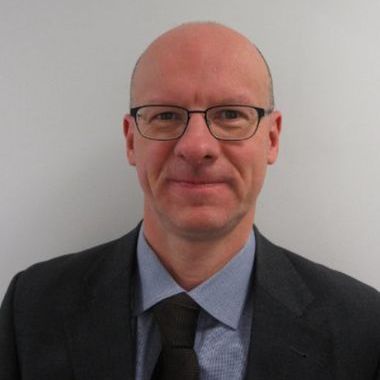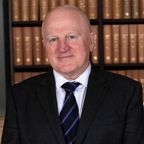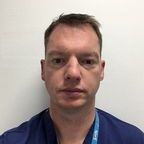Session Description
The Extended Clinical Team(ECT) session at congress is part of the BOA’s wish to embrace the wider workforce in T+O welcoming the ongoing transformations within the NHS that aims for a larger workforce that operates in novel ways within an environment that values compassion and inclusivity. Attracting and retaining a dedicated and enthusiastic workforce is growing more difficult, and the NHS finds itself competing in a labour market that is becoming increasingly competitive.
The ECT includes a variety of healthcare professionals working together to improve patient experience and training opportunities.
Our healthcare landscape faces uncertain, difficult and challenging times ahead. The huge numbers of patients waiting for elective surgery place an increasing stress on already overstretched resources. Our workforce may feel at times feel exhausted, burnt out and demoralised. In these challenging times it is vital that we work together as multidisciplinary teams to share different approaches and expertise, improve patient outcomes and job satisfaction.
The ECT had been recognised and reported as one of the most significant enablers of improving surgical training. It supports the delivery of services that are regarded as at least as safe and effective as the traditional workforce model.
Summary
This lecture presents an overview of how the extended clinical team (ECT) functions in a complex tertiary care setup dealing with MT pelvic fractures and limb reconstruction. The team includes Consultant Surgeons, Registrars and Resident Doctors, with the extension of non-medical role of Advanced Clinical Practitioners (ACPs) and Physician Associates (PAs) who work in a coordinated collectively to ensure the best possible outcomes for each patient. This collaborative effort is pivotal in addressing the multi-faceted nature of trauma care. Through regular case reviews and joint decision-making within the team, they ensure that each aspect of the patient's care is reviewed; from surgical planning to rehabilitation, all part of an integrated care package; leading to improved patient outcomes.
Chairs: Paul Banaszkiewicz and Mark Rees
Draft Agenda
10.30-10.35 - Welcome and introduction to the Extended Clinical Team(ECT)
Speaker: Fergal Monsell, President BOA
Session Title: Extended Clinical Team working within a Major Trauma Hospital and Tertiary referral Centre
Introduction of our role within a Major Trauma Centre
Speaker: Mr Ihab Boutros: Trauma and Orthopaedic Consultant Surgeon,
Role of specialist ACP within pelvic trauma, Limb Reconstruction + Orthogeriatric & Role of P A within Trauma Orthopaedics
Speaker: Debbie Fordham: ACP with Trauma and Orthopaedic
Management, Leadership, Governance
Speaker: Andrew McDonough: Consultant Physiotherapist
11.00-11.30 - Addressing the complexities of upgrading your banding pay scale. The role of additional university modules
This lecture explores the practicalities of upgrading the banding pay scale for orthopaedic plaster technicians by pursuing additional university modules. These modules need to be carefully selected to enhance specific competencies and provide formal recognition of advanced skills. By completing these educational modules, orthopaedic plaster technicians will not only improve their clinical knowledge but also demonstrate the expertise necessary for progression within the pay scale, offering both personal and professional growth opportunities.
Speaker: Joanne Erfani, Senior Sister, Royal Victoria Infirmary, Newcastle
Speaker: Philip Dobson, Consultant Orthopaedic Surgeon, Royal Victoria Infirmary, Newcastle
11.30-12.00 - Radiological interpretation of common orthopaedic conditions
The interpretation of radiological images is a significant part of roles for a range of healthcare professionals. The ability to differentiate and communicate normal and abnormal findings can be daunting and confusing with evidence shows there is a requirement for education and experience to increase confidence and competence. Some elementary and basic principles, however, can provide the core to developing accurate interpretation, and this session aims to introduce how these might be applied in the orthopaedic setting
Speaker: James Harcus, Associate Professor in Diagnostic Radiography
×

Paul Banaszkiewicz
Consultant Orthopaedic Surgeon, Queen Elizabeth Hospital, Gateshead
Paul graduated from Glasgow University, completing his basic SHO surgical training in the Merseyside Deanery and then undertook specialist registrar training on the North East of Scotland training programme. He was appointed as Hip and Knee arthroplasty surgeon at Queen Elizabeth hospital Gateshead in 2004.
He is passionate about training and medical education being a fellow of Higher Education Academy, fellow Academy of Medical Educators and has a Master’s degree in Medical Education.
He is an RCSEng member for the appointments accreditation committee (AAC) and RCSEng quality assurance and accreditation assessor for courses seeking RCSEng course accreditation.
Paul is visiting professor at Northumbria University this role acts as an interface between the academic roles Northumbria University provides and his own clinical oriented background that provides a practical focus for research.
He has been a strong supporter of the BOA Futures Leadership Programme and the BOA annual Travelling Fellowships. He is a keen supporter of BOTA being regularly involved with their annual instructional course and sponsor of BOTA travelling fellowships.
Paul is the main editor and author for three FRCS (Tr&Orth) related exam books that are international best sellers and have won several BMA book awards. He co-ordinates an annual six-day intensive FRCS (Tr&Orth) revision course at Newcastle. In recent years Paul has run its international equivalent for overseas trainees with courses taking place in Dubai, India, Singapore and Jordan.
For many years Paul was involved in humanitarian work in Northern Iraq regularly visiting the region to undertake neglected hip and knee arthroplasty surgery. This gave him a greater appreciation and understanding of our own health care system. Many patients would have continued to struggle due to a lack of local expertise and resources to pay for expensive surgery.
Through the contacts he has made overseas Paul is keen to develop the international profile of the BOA.
In his spare time, Paul is a keen runner, skier, gardener and Burnley FC fan.
×
Fergal Monsell
Consultant Orthopaedic Surgeon, Bristol Royal Hospital for Children
Fergal Monsell graduated without distinction from the Welsh National School of Medicine. He completed higher surgical training at the University of Manchester and has been a Consultant at the Royal Hospital for Children, Bristol since 2004. He is involved in the management of paediatric patients with a special interest in limb deformity and trauma.
He has made a greater than average contribution to the canon of lower-level evidence and has been awarded degrees at Master and Doctorate level.
He has a longstanding interest in education, is Director of the Avon Centre for Musculoskeletal Education and Projector at the Grand Academy.
×
Andrew McDonough
Consultant Physiotherapist, Northern Care Alliance NHS Foundation Trust
Andy is a consultant physiotherapist in trauma and orthopaedics at the Northern care Alliance with a background in advanced practice across emergency medicine and trauma and orthopaedics. Working clinically in consultant and physio led fracture clinics Andy has experience of leading service change, pathway redesign and research, with multiple publications in orthopaedics, emergency medicine, injury rehabilitation and sports science. Andy is the chair elect of the APPN as well as the community of practice lead for T+O and ED.





